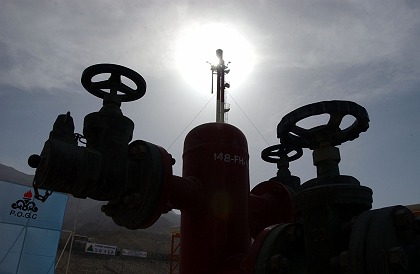
The EU-27 consumed 18.7 per cent of world oil production, 17 per cent of the world’s gas production in 2006. The EU is highly dependent on fossil fuel imports. 62.7 per cent of gas consumption in the EU-27 is currently (2006) imported. Moreover, the EU’s dependence on imported energy is set to grow further given that the EU’s domestic deposits (mainly those in the North Sea) are largely depleted and therefore its own hydrocarbon production will inevitably decline. Although the EU produces 37 percent of its gas consumption, 29 percent of gas consumption originates in Russia. Norway provides 17 per cent and Algeria 13 per cent of EU oil consumption.
The EU is most interested in diversifying both its gas suppliers and the supply routes. At the very center of the EU’s route diversification efforts is the Nabucco-Pipeline, set up by the Nabucco Gas Pipeline International consortium that consists of six companies (OMV, RWE, MOL, Transgaz, Bulgargaz und Botas), with Austria’s OMV in the lead. Nabucco is supposed to stretch from Erzurum, Turkey – the terminal point of the Trans Caspian Gas Pipeline – to Baumgarten, Austria, which will become its terminal point and major distribution center.
So far, the Nabucco consortium has been unable to contract sufficient gas even for the start-up phase of the venture. The start-up phase is set to begin in early 2012, although it may be delayed to 2013. Azerbaijani gas production will be crucial for the viability of Nabucco. Gas from Azerbaijan for the Nabucco pipeline will, as of today, most likely not exceed 10 bcm annually in the medium-term future. Nabucco, however, is expected to be economically profitable only with a target capacity of about 30 bcm. The first phase of Shaz Deniz, which was launched in late 2006, is about to produce up to 15 bcm/year. In early October 2007, plans for extricating gas in phase II of the Shaz Deniz project had to be delayed by one year to 2013.
Two other facts further reduce the gas available for exports through Nabucco, though: With Azerbaijan’s domestic consumption on the rise, export volumes might stagnate. What is more, Azerbaijan is committed to supply gas to Turkey and Georgia, which further reduced the gas volumes available for Nabucco. Nabucco could also be rendered viable through the inclusion of Iranian gas. The U.S., however, is exerting pressure on the Nabucco consortium to exclude Iran from the project. After OMV signed a memorandum with Iran on investment in three blocs of Iran’s giant gas field South Pars, the company was harassed by the U.S. on the basis of the Iran Sanctions Act of 1999. OMV seems to have succumbed to U.S. pressure, but the Turkish and Iranian governments are keen to go ahead with their cooperation on developing the large South Pars gas field and transport part of the produced gas to Turkey. The gas reserves of that field are estimated as 53.8 bcm.
In case Turkey and Iran will eventually sign an agreement on the joint development of South Pars, the produced gas will be exported to Turkey via existing pipelines and could feed the Nabucco pipeline. However, it could also be liquefied and export by tanker via Ceyhan.
If Nabucco was to be working, Iranian gas has to be included. This requires huge financial investments and technology transfer as gas production in Iran is rather low and only about 20 bcm currently are exported. The EU can’t afford to wait for regime change in Iran for tapping Iranian gas reserves. If it is not the EU, many major economic players are keen to buy Iranian gas, particularly India and China. Rerouting Iranian gas exports to the east is in the vested interest of Russia.
Excluding Iranian gas for the EU market means deepening the EU’s gas dependence on Russia. It’s about time to make crucial decisions. Iranian gas is vitally important for the EU gas supply security. You got to buy what you need.
Photo: http://www.spiegel.de/international/0,1518,470353,00.html
